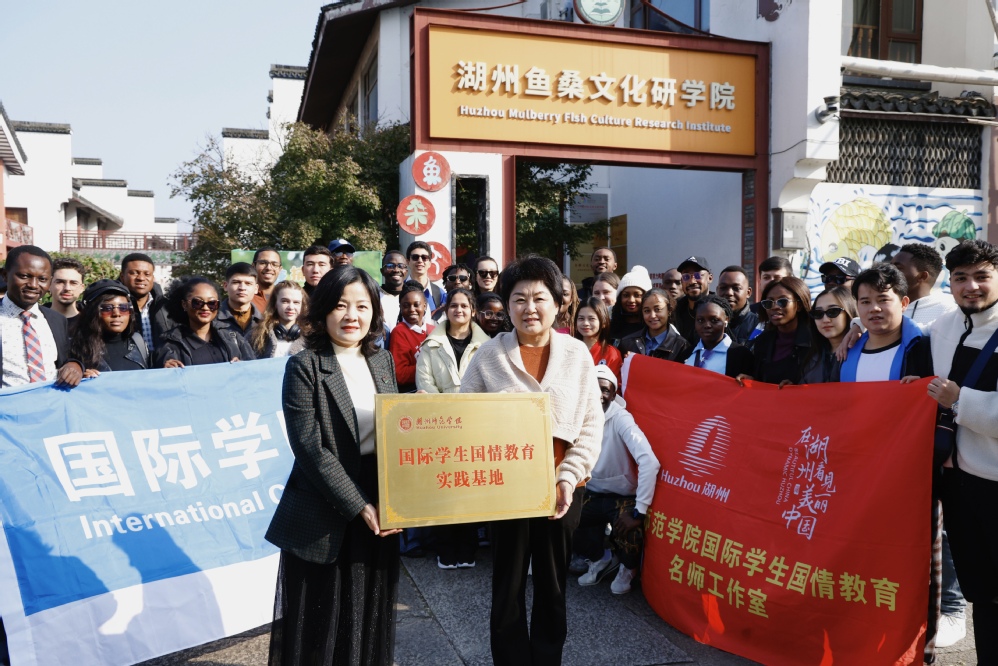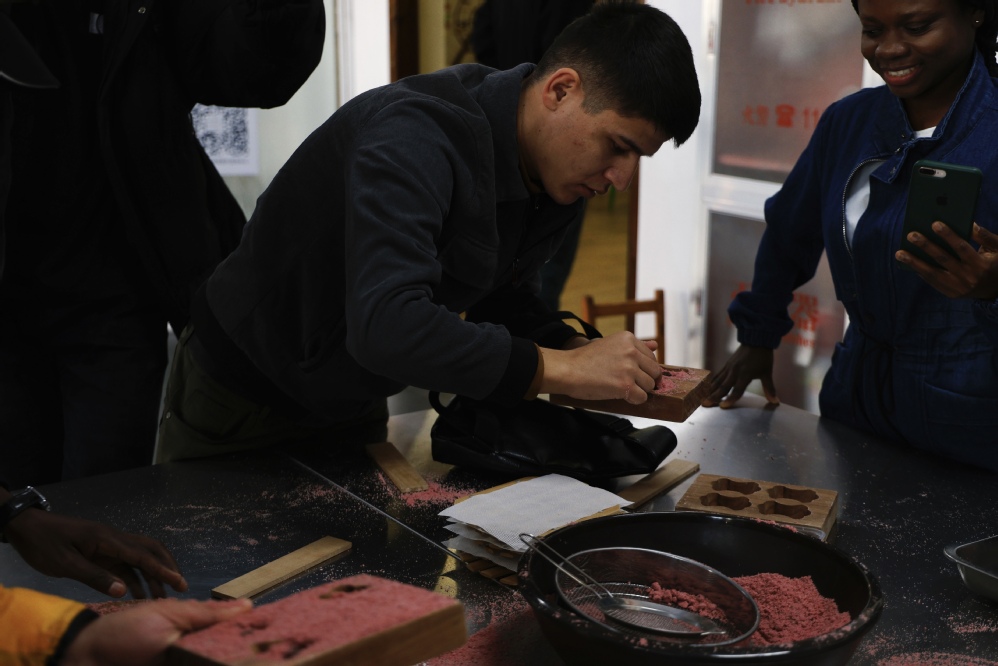On November 21st, the International School at our university organized a national education activity, leading international students to visit the historic Digang Fishing Village in Nanxun District to gain a deeper understanding of China's traditional culture and social development. This event not only provides international students with a valuable opportunity to have close contact with Chinese local culture, but also enhances their understanding and recognition of China's national conditions.

At the beginning of the event, a plaque awarding ceremony for the International Student National Education Practice Base was held at Digang Fishery Village. The head of the International School and the chairman of Digang Fishery jointly unveiled the plaque for the base. This measure marks a new step in cultural exchange and educational cooperation between the two sides, providing a platform for more international students to learn and experience traditional Chinese culture.

International students experienced the production process of Dingsheng cake, a traditional delicacy in Huzhou. Under the guidance of their master, international students personally tried a series of processes such as grinding rice, mixing ingredients, steaming cakes, etc., experiencing the charm of Chinese food culture and enhancing their interest and understanding of traditional Chinese culture.
In order to enable international students to have a deeper understanding of China's social and cultural background, a research task was specially arranged for the event. The students were divided into several groups and conducted a detailed investigation of the Digang Fishing Village and surrounding areas from multiple perspectives such as ancient bridges, ancient architecture, religion, and folk customs. Each group of students has different themed tasks, such as exploring local traditional architectural styles, studying ancient bridge structures, understanding local religious beliefs, and exploring rich and diverse folk cultures. Through on-site visits, interviews with local residents, and reviewing relevant literature, students not only accumulated a wealth of first-hand information, but also learned to approach communication and integration between different cultures with a more open and inclusive mindset.
This international student national education activity is not only a vivid cultural exchange journey, but also an important measure to promote international students to better integrate into Chinese society and enhance friendship between China and foreign countries. In the future, the International College will continue to carry out more diverse forms of national education activities, providing more international students with opportunities to gain a deeper understanding of China and jointly promote cultural exchange and development.
